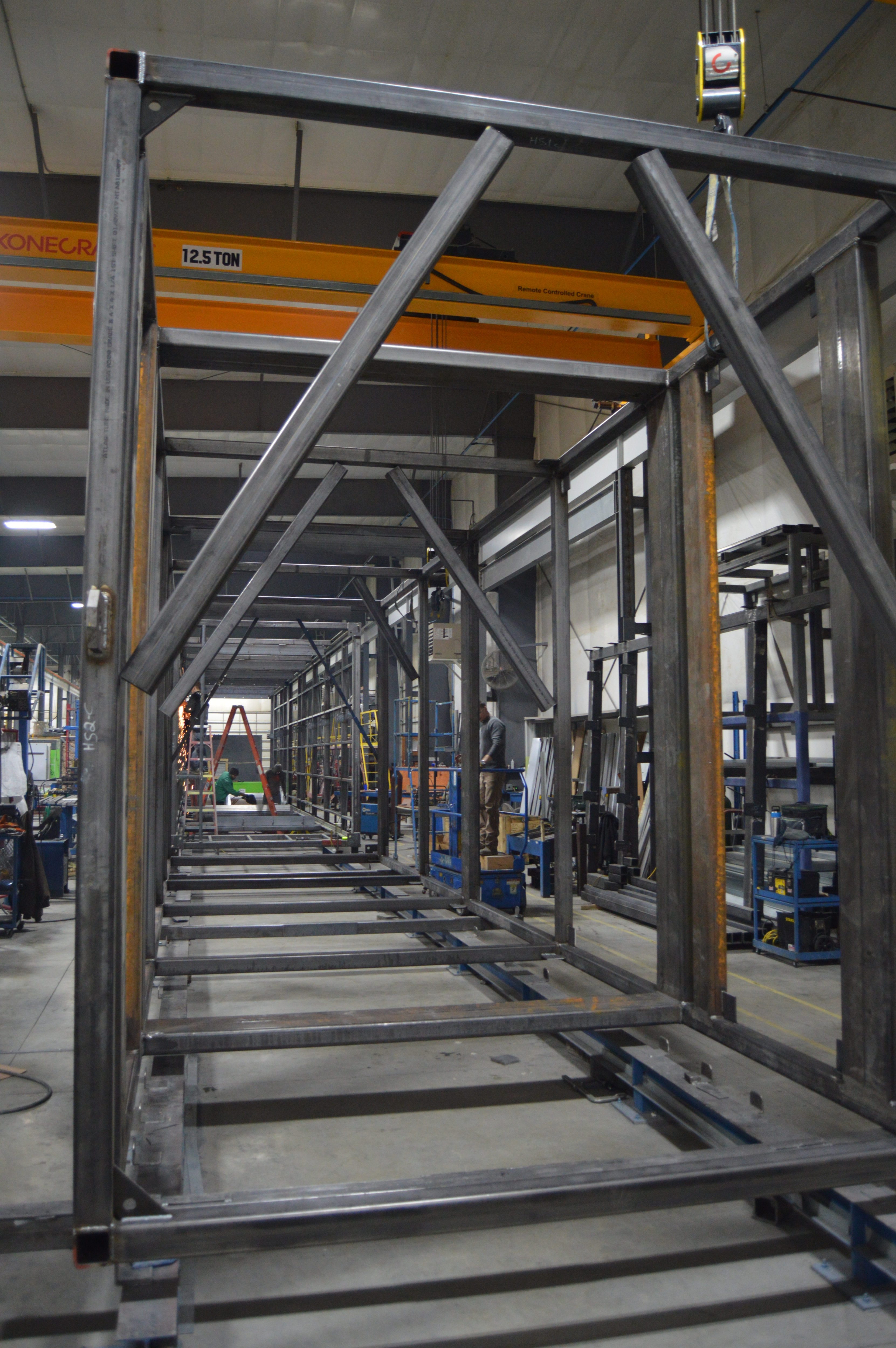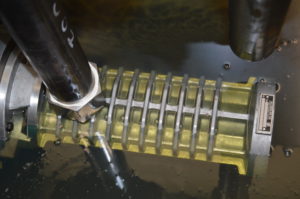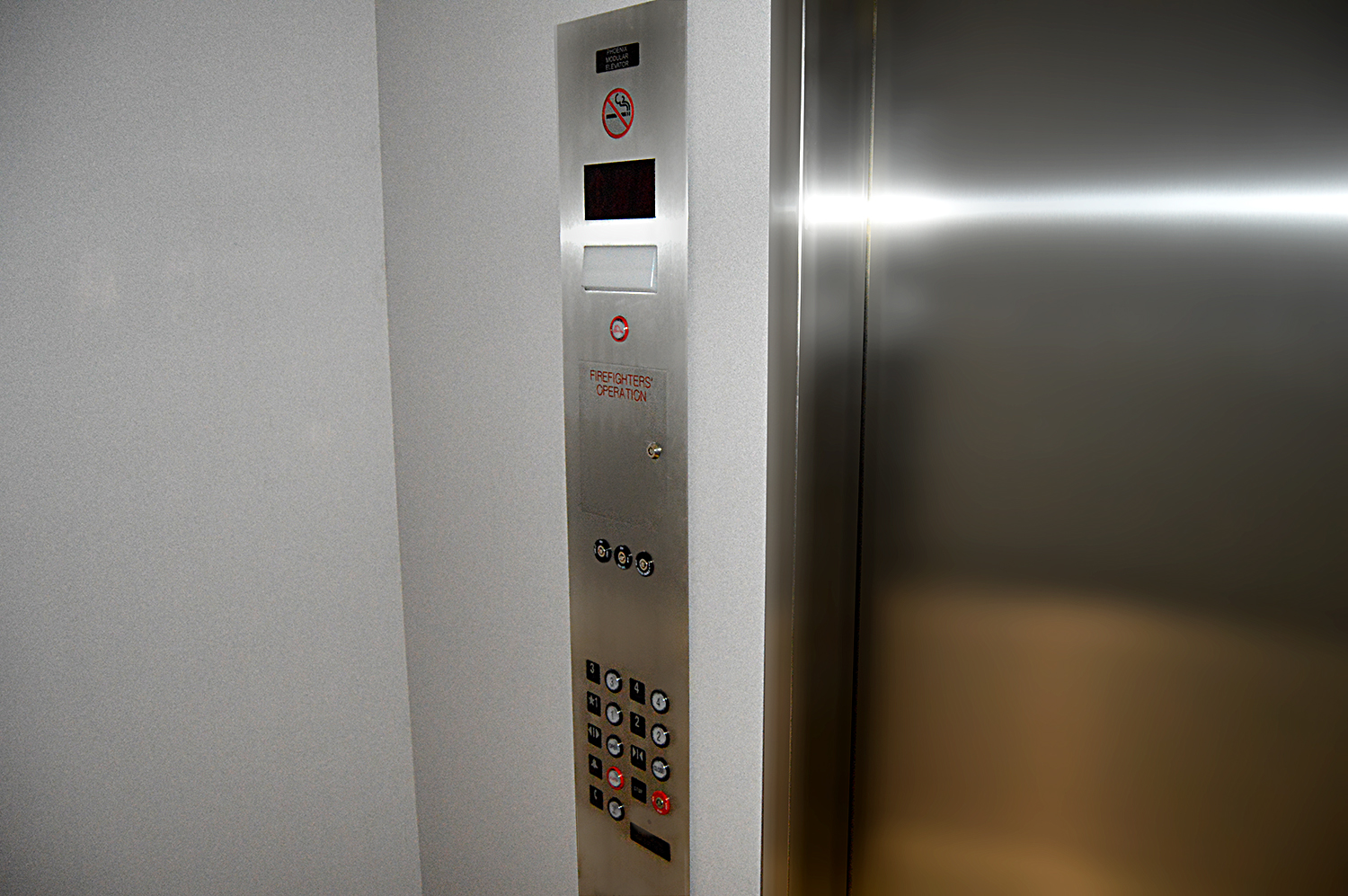
Manufactured One Piece
March 11, 2019
Elevator State
June 14, 2019Hydraulic Oil – Passing the Test
Usually when you hear about an elevator passing the test, you’re thinking about passing the annual inspection. Once you pass the annual, you get a certificate to slip into the picture frame in the elevator car noting you can operate the unit until the next time you are required to go through the routine testing again. But that is just one test, and it largely surrounds the safety of the riding public. There is actually another test to pass that has more to do with the operation and longevity of the elevator itself, but it is rarely conducted. The test is of the hydraulic fluid, or oil, you find in the tank, jacks, and pipes.
Hydraulic fluid is literally the lifeblood of the hydraulic elevator. Without the oil, you have a fancy box sitting at the bottom of a tall, useless shaft. It is the fluid that makes the elevator go and, just like a blood test at the doctor’s office, your elevator oil may need a test, too.
Here’s What you Need to Know
First, hydraulic elevators are going to be used a lot in the future and will continue to be an extremely common solution because they are perfect for low and most mid-rise applications. The machine roomless (MRL) traction was supposed to put an end to hydraulic elevator’s reign of dominance for less than 50′ of travel, but they are hitting all sorts of roadblocks, including price and laws restricting placement. The entire state of California hasn’t taken a shine to the MRL and has a law prohibiting use due to limited access to the motor apart from the car top. Cost-wise, in our experience, upfront cost of the MRL traction is nearly 40% higher than a comparable hydraulic, and maintenance for a traction unit is 30% more expensive.
Second, the oil is extremely important to the entire operation of the hydraulic elevator. The oil lifts the car and passengers, reduces friction, transfers heat away from moving parts to keep the machinery cool and lubricates those parts as well. Also, most mechanical breakdowns of the pump, valves and submerged components can ultimately be traced back to bad fluid.
The hydraulic elevator is alive and well and will continue to be a mainstay of the industry for decades into the future, regardless of who is trying to push traction down the throats of unwitting customers. Of course, the push is for the benefit of the elevator company, not the building owner.
All the Benefits Can Disappear
But all those benefits of low maintenance and high upfront costs can be mitigated quickly if the oil is not up to snuff.
So how does the elevator mechanic know if the oil needs testing?
→ Believe it or not, the smell is a big indicator. Foul-smelling hydraulic fluid means it has been compromised.
→ Problems leveling is another sign. If constant adjustment is not getting the elevator to level quickly, the oil may be filled with sludge or have viscosity issues, including breakdown.
→ Hard stops, stalls, and not holding its position, especially under load, is another signal the oil needs tested.
→ Leaky gaskets and fittings are yet another indicator.
If these problems are continual, laboratory testing of the oil may be utilized where viscosity and acidity is determined and the amount of oxidation, degraded additives, foreign particles and water can be measured. Once you know what the problem with the oil may be, a proper course of action should be taken, from filtering to water removal; replacing all of the oil and flushing the system may not be required.
The Need is There Testing Hydraulic Oil
Is this testing really needed? The unfortunate answer is yes. Bad oil can cause poor operation that can lead to catastrophic failure of the pump, valves, and even jacks. And problematic oil is more widespread than you would think. For instance, while researching hydraulic oil, I ran across a paper written by Stamatios Kalligeros for the Hellenic Naval Academy, Fuels and Lubricants Technology. He was trying to demonstrate the possibility of oil analysis helping in maintenance of elevators and, to prove his point, he analysed several elevators and their hydraulic fluid. It was an interesting article, but in the conclusion, the problem with oil and oil maintenance was clearly demonstrated. He indicated the following:
The results can be summarized as follows. All hydraulic fluids examined were not complying with the specification of the engine manufacturer. More specifically, for two of the elevators, the hydraulic fluid which was used has viscosity that does not conform to the classifications’ viscosity grade range. Additionally, one elevator was working with different grade of hydraulic fluid from the one proposed by the engine manufacturer. The elemental analysis of sulfur levels in the hydraulic fluid shows the maintenance intervals in the operation of the elevators. The analysis of zinc, phosphorous, chlorine and calcium, verifies that the oil which was used in one elevator is different from the oil used to the other two. Additionally, it reveals a significant wear to all the elevators as a result of the working environment conditions.
It was a small sample, but is it just me, or does this mean that your elevator may need oil testing to make sure it is clean, has the proper viscosity, and is the right type required being put in? Check your maintenance contract and see if scientific testing of the fluid is covered. If not, ask how much it will cost. There are several companies that will do onsite testing for you.
If you have any questions at all feel free to contact us. If you have a project in mind then just click the “Free Quick Quote” button below.




